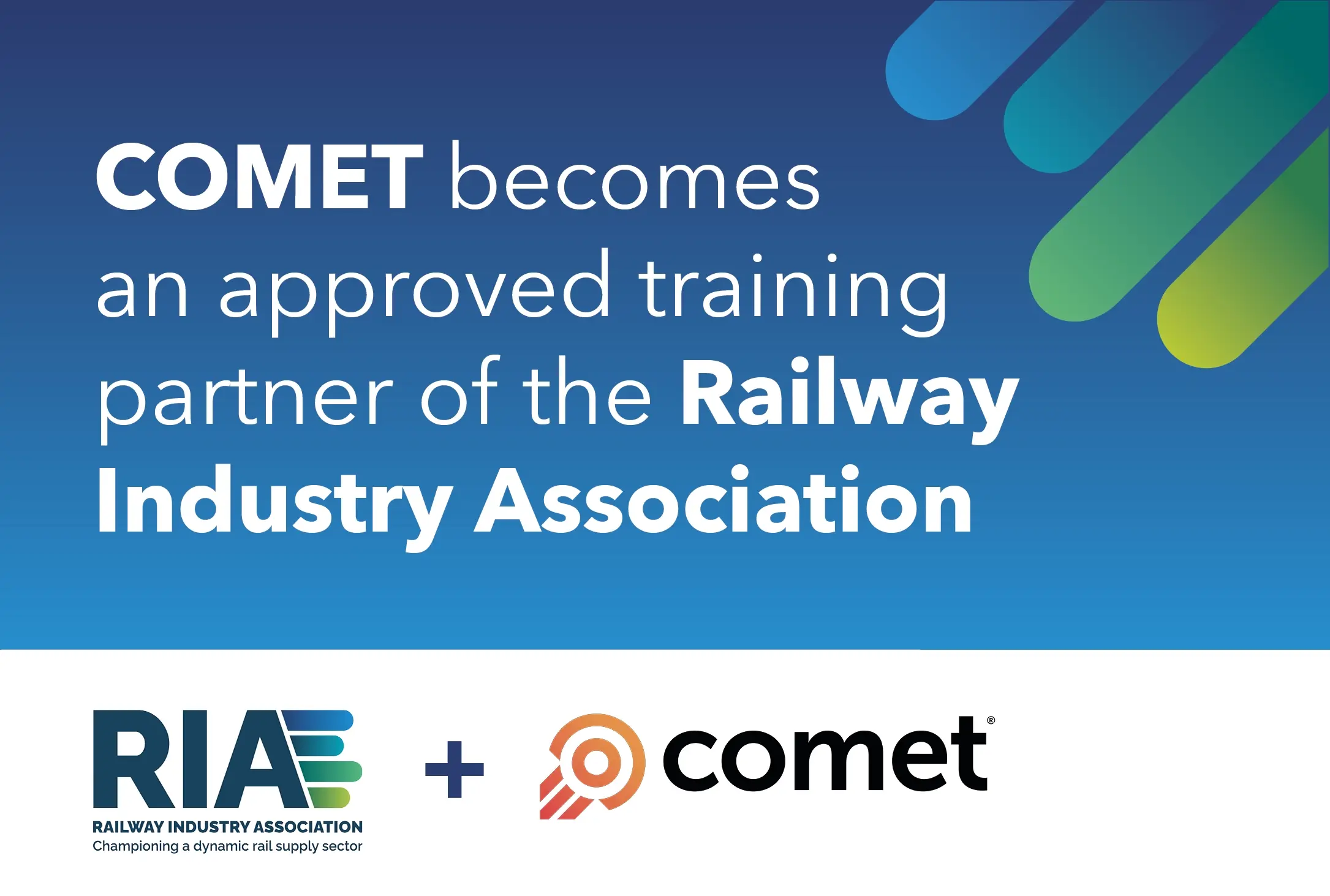COMET was pleased to attend TOC Europe in Rotterdam earlier this month, joining the global conversation around safety, innovation, and operational excellence in the port and cargo supply chain sector.
As well as spending time at the PSS stand and speaking with delegates and other exhibitors, we also sat in on a number of sessions about safety leadership and culture. One that really stood out was A Behavioural Approach to Safety Culture, held at the Safety Village on Tuesday, 17 June.
This panel discussed how behavioural science, psychological safety, and internalised safety practices can impact performance at ports and terminals.
During the session, Debbie Cavaldoro, CEO of PSS, acknowledged that anonymous reporting had its advantages in encouraging people to come forward, but raised that companies should also be looking to improve company culture so that people feel able to speak out. She said:
“If reporting has to be anonymous, then there is a problem with your safety and company culture. How can you investigate, understand, correct, and prevent something without the full story?”
Debbie’s answer resonated strongly with us at COMET. Across the high-risk sectors we support, real learning depends on real clarity. Understanding the full story behind safety issues is critical.
Ports are busy, high-risk places with lots of moving parts, heavy equipment, and different contractors working side by side. When something doesn’t look safe, workers need to feel able to speak up straight away. That could be a container being lifted without proper checks, damaged mooring lines, or poor visibility near moving vehicles. The people doing the work are usually the first to spot when something is wrong. In the UK, workers have the legal right to stop a job if they believe it puts them or others in serious and immediate danger. That right is protected by law and backed up by industry guidance like Safety in Docks and advice from Port Skills and Safety. The foundation of that right, however, is a culture where people feel safe, supported, and encouraged to act. Without that, anonymous reporting becomes a stand-in for the open dialogue that should already exist.
The purpose of anonymous reporting
Anonymous reporting was created to make it easier for people to speak up, especially if they were worried about getting into trouble for doing so. It allows employees to raise concerns without putting their name to it and can help bring up issues that might otherwise be kept quiet. In busy or top-down work environments, it can give people the confidence to come forward. But if it becomes the main way people report problems, it often means there’s a bigger issue with trust and safety culture.
What organisations risk when they rely on anonymous inputs
Reports without names often arrive without the necessary detail. This makes them harder to investigate, limits corrective action, and increases the risk of misinterpretation. Patterns are harder to verify. And if similar reports arise repeatedly, it becomes difficult to know whether a broader systemic issue is unfolding or whether a small, vocal subset is shaping perception.
Some organisations begin to treat anonymous channels as the main source of feedback. This creates a reactive loop. Instead of engaging with the workforce and encouraging open conversations, teams are left responding to fragments and guesswork.
The organisational impact
- False leads can divert valuable time and attention
- Trust may erode if employees believe leadership is collecting reports without showing accountability
- Investigations may stall if they lack specific facts or cannot be followed up
- Cultural confusion often grows when feedback systems feel disconnected or unclear
What overuse of anonymity actually tells us
Frequent use of anonymous reporting usually reflects a lack of psychological safety. When employees don’t feel safe speaking honestly, they tend to keep quiet or find ways to protect themselves.
In workplaces with a strong safety culture, people know their concerns will be taken seriously, they won’t be blamed unfairly, and raising an issue is seen as the right thing to do, not something that could get them into trouble.
A different approach from high-performing organisations
Organisations with consistently strong safety records typically build structured, transparent systems that promote direct dialogue.
These include:
- Training to support confident, respectful feedback and challenge
- Clear processes for confidential (but not anonymous) reporting, where protection policies are in place
- Root cause analysis methods that focus on systemic learning instead of blame
- Regular, visible engagement with frontline workers through two-way conversations and observations
At COMET, we see this approach working across ports, energy, rail, construction, and utilities. Our Behavioural Safety Excellence training and Structured Investigation methodology help operational teams improve not only the way they respond to incidents, but also how they prevent them in the first place.
Reframing the role of anonymous reporting
Anonymous reporting can still be useful. It may act as an entry point for those who feel uncertain or new to a role, but it should not carry the weight of your entire safety intelligence process.
Where heavy reliance on anonymous input exists, it is worth asking:
- What barriers are preventing people from speaking openly?
- How confident are our teams that they will be heard and protected?
- Are our systems designed to gather surface-level feedback or to support deeper learning and continuous improvement?
Strengthening your safety culture with structure and clarity
Organisations do not improve safety by removing fear alone. They improve by replacing that fear with trust, systems, and clarity. The ability to investigate, understand, and act effectively depends on context and communication, not just data.
At COMET, we help high-risk organisations shift from reactive processes to structured, behaviour-led performance systems. If your goal is to strengthen safety culture, raise engagement, and improve reporting quality, we can support you.
Safety is not a competition
One of the key themes that came through at TOC Europe was that while companies compete in business, they do not compete when it comes to safety. Across the ports and logistics sector, there is a shared understanding that improving safety is a collective responsibility. When one operator finds a better way to identify risk or prevent incidents, the whole sector can benefit. Benchmarking, in this context, is not about comparing scoreboards. It’s about learning together, raising standards, and helping the entire workforce go home safe every day.
Turning shared insight into shared progress
This is one of the reasons COMET and Port Skills and Safety (PSS) launched a collaborative initiative to strengthen incident investigations and promote learning across the UK ports sector. The aim is to improve consistency, highlight underlying causes, and reduce repeat issues through a more structured, insight-driven approach. By aligning investigation standards and sharing lessons across organisations, we can help improve safety outcomes for the whole sector, not just one operator.
Read more about the initiative
Ready to move beyond anonymous reporting and build aculture of trust and learning?
See how COMET’s tools and training help high-risk teams uncover the full picture, drive better decisions, and strengthen safety from the ground up.
👉Explore COMET Services
👉Explore COMET for Investigations and RCA


.webp)

